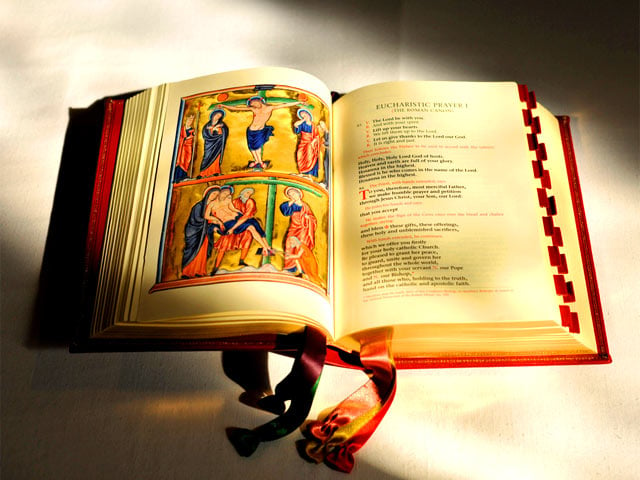- Home
- 우리들의 공동체
- 우리들의 신앙
- 성무 활동
-
본당 생활
- 행사일정
- St. Aidan's Video Links
- 본당 블로그
- 뉴스 기록 보관
- Mass Etiquette and Information
- Ad Orientem News and Facts
- Catholic Links
- Prayers and Announcements
- Luis Dizon Reflections - Archive
- 게시판
- 연락처
- Search

Praying Ceaselessly (17th Sunday in Ordinary Time)
Click here for the Sunday Reading
In this passage, we see Abraham interceding on behalf of the people of Sodom and Gomorrah to save his nephew Lot. However, he also brings out some important aspects of God’s character in the course of his conversation with God. Here, we see two important themes on display:
1) The triumph of God’s mercy. Scripture tells us that God does not delight in the death of the wicked, and that He does not wish for anyone to perish, but for all to be saved (Ezekiel 18:23, 1 Timothy 2:4, 2 Peter 3:9). However, God is also just, and His justice demands that evil be punished. Here, we see the interplay between mercy and justice, and the primacy God gives to the former. Abraham intercedes before God to spare the city if fifty righteous souls are found in it, and continues interceding until that number is brought down to ten. Even when less than ten are found, God finds a way to rescue those righteous souls. The ultimate expression of God’s mercy, however, is found in Christ’s sacrifice on the cross to save us from our sins.
2) The importance of ceaseless prayer. This connects with the Gospel reading, where Jesus teaches us to pray ceaselessly. Sometimes God does not respond right away, but we must never cease asking Him. Likewise, God was willing to negotiate with Abraham for the sake of the souls in Sodom and Gomorrah, but it takes Abraham taking the initiative to intercede for something to happen, the ultimate result of which is the rescue of Lot and his daughters. This is according to God’s infinite wisdom, Who already knows what we’ll ask before we ask it (Matt. 6:8), yet still desires to include our desires and decisions. Old Testament scholar John Goldingay brings out the full import of this reading:
We might have thought Abraham was here speaking with God. But the story closes by referring to God’s having been speaking with Abraham. That fits the way the account of the prayer starts with God’s hanging around after the departure of the other two “men,” almost as if to ask, “Is there anything you want to say to me before I go, Abraham?” Abraham is indeed like a member of the heavenly cabinet whom God wants to involve in the process of decision making about what happens on earth. His prayer takes place within God’s purpose, not against it1
J. Luis Dizon
Note
1 John Goldingay, Genesis for Everyone, Part 2: Chapters 17–50 (Louisville, KY: Westminster John Knox Press, 2010), 26.
